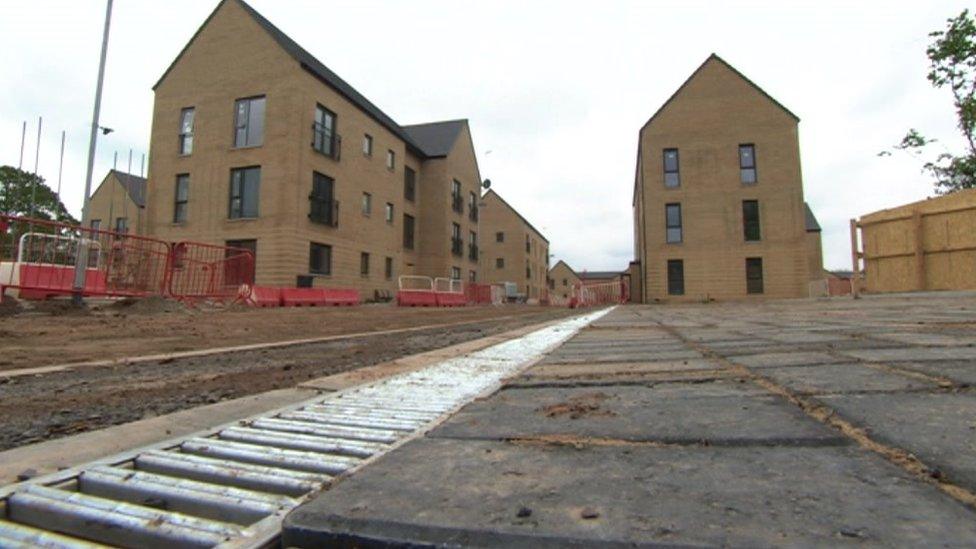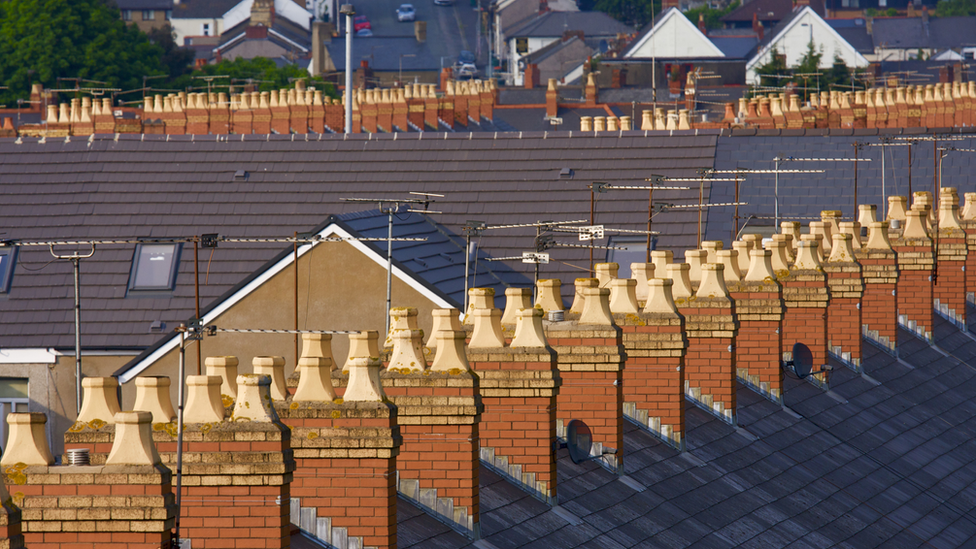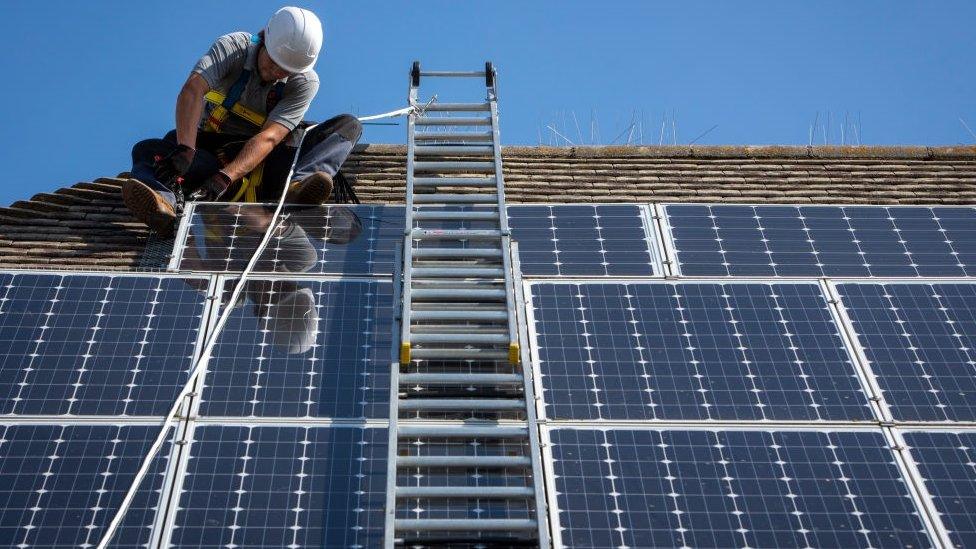Welsh government drops green target for social housing
- Published

Proposals for Wales' social homes to reach the highest energy efficiency rating by 2033 have been dropped.
Council and housing associations will instead set their own plans to reduce carbon emissions and make homes as affordable to heat as possible.
The Welsh Government said the standards - updated for the first time in 20 years - were "bold" and "achievable".
But a housing group said there was a lack of funding to pay for the upgrades.
The Welsh Housing Quality Standards (WHQS) set environmental targets, guidelines to keep homes free of damp and mould, and rules on the quality of bathrooms, kitchens and floor coverings.
Tenants should have secure places to keep bikes and water butts to gather rain water in gardens "when appropriate", the standards say.
Draft proposals, consulted on last year, said landlords would be expected to meet the highest energy performance certificate (EPC) rating of A by 2033.
But the final version removes the date. Instead, landlords must assess the condition of their homes then produce an "energy pathway" that explains what can be done to get to EPC A.
In the meantime, a minimum rating of EPC C will have to be met by 31 March 2030.
'Vital we lead the way'
A Welsh government spokesperson said "all landlords need to meet EPC A at a point in the future" with the date to be determined "by the Whole Stock Assessment and Target Energy Pathways that need to be undertaken in the first three years after the standard is launched".
The consultation also proposed asking landlords to stop installing fossil fuel boilers by 2026, but that target has also gone.
Climate Change Minister Julie James said: "It is vital that we continue to lead the way in decarbonisation of housing and learn how to upgrade social housing effectively and efficiently, in ways which reduce carbon emissions, and energy bills for tenants."
Upgrading the 230,000 social homes in Wales will "drive how we as a nation tackle decarbonising the 1.2 million privately owned homes", she added.
Around £270m is being spent on insulation and upgrading central heating in social homes.
The Chartered Institute of Housing (CIH) said the higher standards were supported by landlords, but there were concerns about the original timetable.
CIH Cymru national director Matt Dicks said the funding on offer "is not likely to be able to meet this aim due to ongoing inflationary pressures".
"If we are to ensure that social housing in Wales can meet the high standards outlined in the new WHQS, then we need to ensure that social housing providers are provided with the adequate level of certainty around the financial support needed to meet our shared ambition," he said.
In the Senedd, Plaid Cymru MS Mabon ap Gwynfor asked whether the standards were genuinely achievable.
"An entire rebuild project will be required in some cases," he said.
Conservative MS Janet Finch-Saunders said there was a shortage of plumbers, electricians and joiners to do the work.
"So, it's an even bigger ask that we need these skills in place to be able to carry out this work appropriately," she said.
Related topics
- Published30 May 2019

- Published29 July 2022

- Published4 August 2021
